Bali is a vibrant, exotic island that’s never short on visitors. Its unique
culture, stunning oceans, and majestic mountains draw travellers from across
the globe. There’s a certain magic that keeps people coming back to Bali again
and again.

What makes Bali even more special is its people. The Balinese go above and
beyond to ensure visitors feel welcome and at ease. Their kindness and positive
habits make every tourist’s stay even more enjoyable. Let’s explore the unique
traits and daily habits of the Balinese people that make this island truly
unforgettable.
Friendliness and Smiles
The Balinese are known for their genuine warmth and friendly demeanour, a
quality deeply embedded in their cultural heritage. Locals often greet
foreigners with open smiles, making visitors feel instantly at home.

It seems their positive energy never falters, as their expressions and
interactions consistently convey joy. Of course, like anyone, they have tough
days, and at times, Balinese people may appear more serious or reserved. This
might stem from uncertainty or unfamiliarity with foreigners. In such situations,
offering a smile or a friendly nod can quickly change the mood. Their
seriousness softens, and they reciprocate the smile, appreciating our warmth.
As one local artist and author notes, most Indonesians are considered gampang
guyub, meaning "easy to get along with," as they seek harmony in
their relationships. While not everyone may embody this perfectly, the vast
majority of Balinese are genuinely kind-hearted and approachable.
Openness in Communication
Balinese people are naturally open and quick to initiate conversations, effortlessly
forming connections with others. As a renowned tourist destination, Bali has
nurtured its locals to be friendly and welcoming when interacting with
visitors, including international tourists. Even with limited English
proficiency, they engage confidently in conversation, often starting with
familiar questions like, “Where are you from?” or “Where are you going?”

In southern Bali especially, locals learn English and other languages simply
by interacting with tourists from around the world. Through this constant
practice, they quickly adapt to speaking foreign languages. This talent for
languages likely stems from the fact that most Balinese are multilingual from
an early age. They grow up speaking Indonesian, the official language of the
country, while also using Balinese, which is widely spoken in their homes and
communities.
Calmness and Serenity
The Island of the Gods leaves a lasting impression of calm on its visitors.
The Balinese lead tranquil lives, deeply rooted in an agricultural culture.
Farmers tend to the land, harvest crops, and shape the stunning landscapes that
contribute to the island's serene atmosphere. The well-maintained green rice
fields are particularly breath-taking.

As one elderly local put it, “We welcome visitors from all over, whether
foreign or local. Let them experience the peaceful, joyful life in Bali. It’s
like a never-ending vacation, without the noise of big cities.”
Guests are Treated as Kings
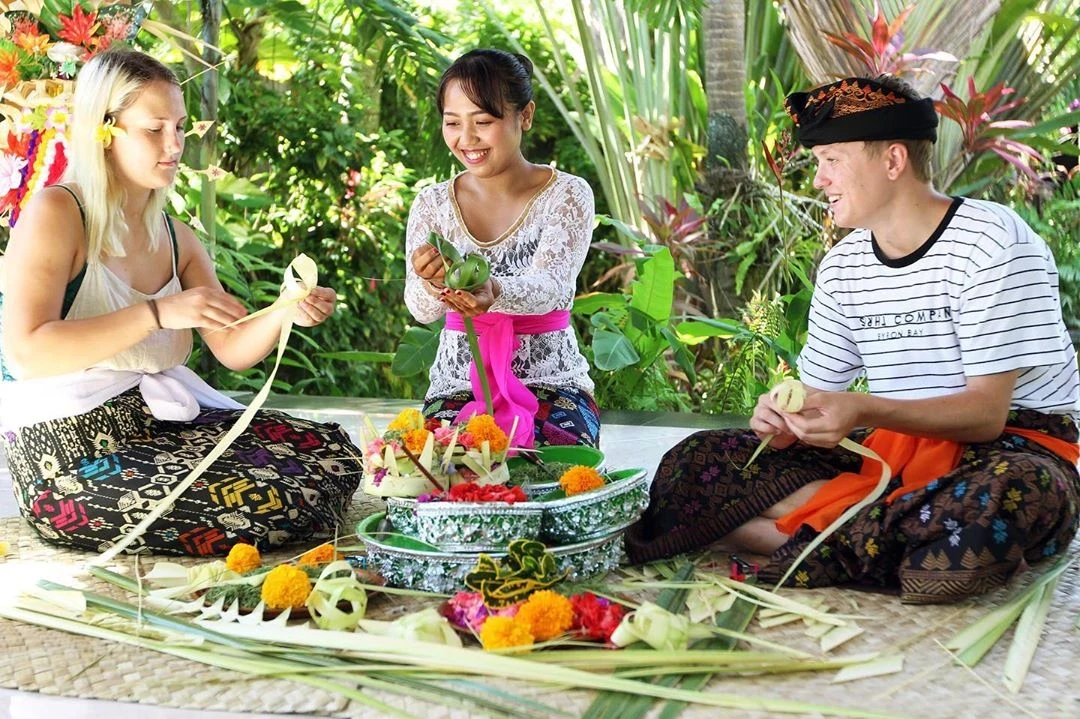
Balinese people have a long-standing tradition of treating visitors like
royalty. They take great joy in serving their guests, welcoming them into their
homes, and offering delicious food. This genuine hospitality makes visitors
feel comfortable and at ease. This custom has been ingrained in Bali’s culture
since the island first became a tourist destination.
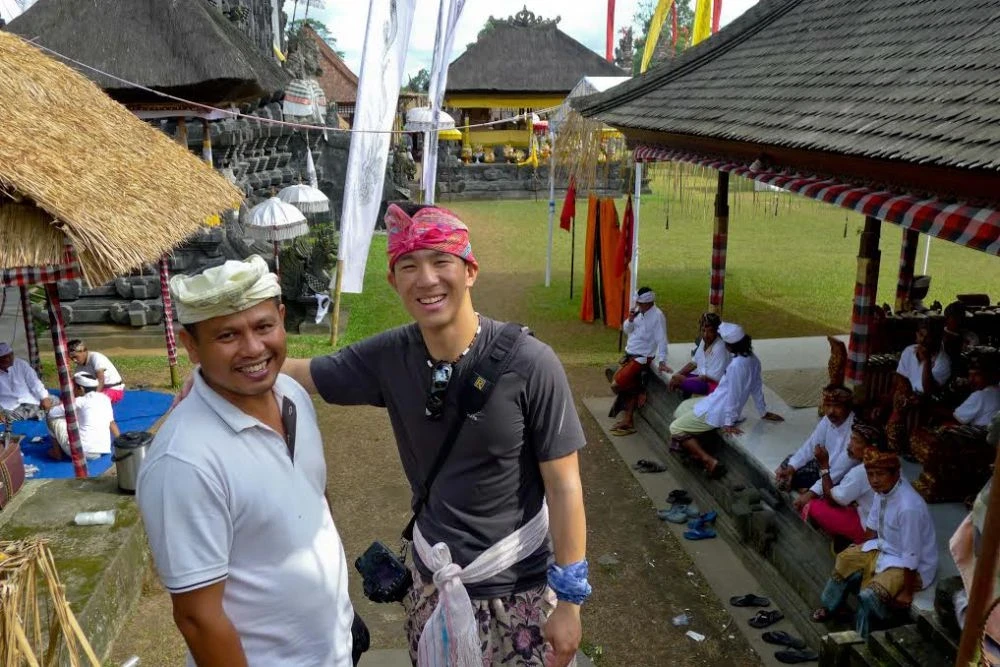
It’s also known that many Balinese families always keep an extra room
available, just in case a guest arrives, or someone needs a place to stay. This
tradition of always welcoming others is how the culture of guesthouses
(homestays) in Bali originated.
Living in Harmony with Art and Religion
For Indonesians, particularly the Balinese, every aspect of life is
intertwined with religion, art, and culture. Bali is deeply rooted in
tradition, and this connection is evident everywhere, from the daily offerings
placed at temples to the streets adorned with decorations during festivals.
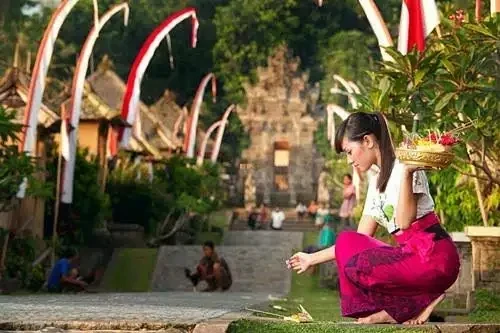
The Balinese are naturally artistic and creative, living lives that feel
like an ongoing celebration, filled with festivals, entertainment, and
traditional events. Religion plays a central role in Balinese life, with many
unique rituals that captivate the island’s visitors. One such ritual is called mesaiban
or ngedjot, a morning ceremony where food is prepared and
offered at a sanggah (small temple) and shared with neighbours as a
gesture of gratitude for the gods' blessings.
Art is woven into the fabric of Balinese life. Music, dance, and sculpture
are beloved art forms, and the traditional Balinese instrument, gamelan,
is especially popular for its enchanting, melodic sound. Gamelan is often used to accompany
cultural, social, and religious activities, reflecting the deep connection
between the Balinese people and their artistic traditions.
Willingness to Take on Guiding Duties
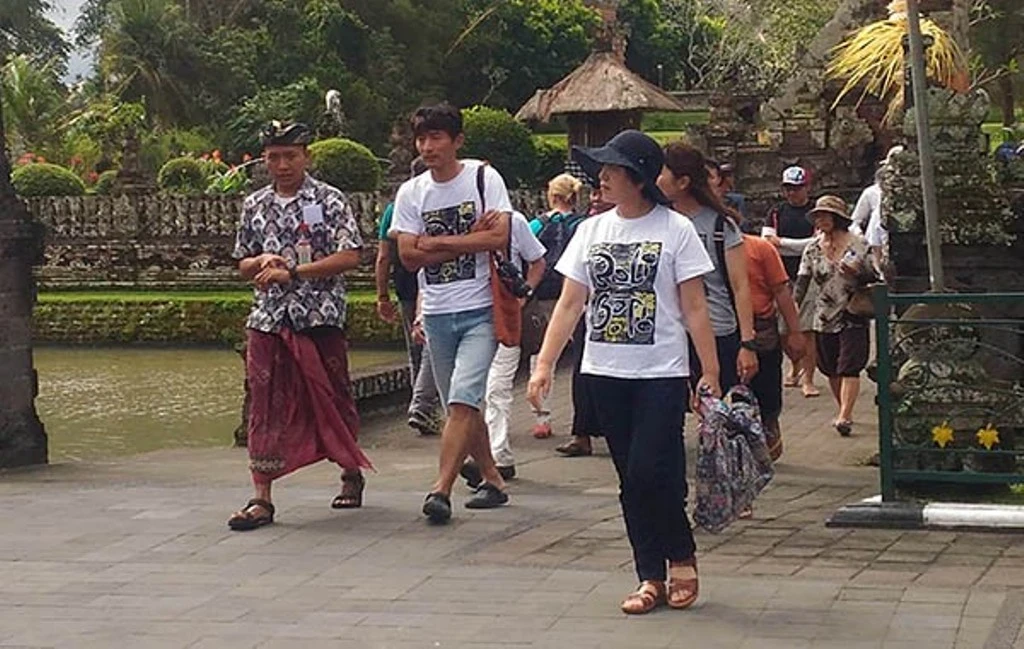
Balinese people are naturally resourceful and often take on roles as guides,
which benefits both them and the tourists. They are happy to share their
knowledge of the island, often acting as guides, drivers, and even
photographers. This not only enhances the visitor's experience but also
provides locals with a meaningful way to earn extra income.
Nature Conservationists
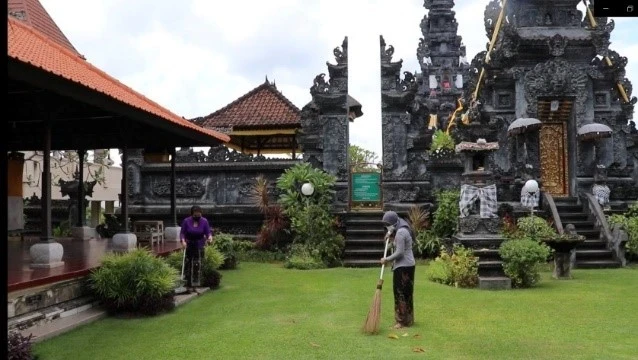
Balinese people strongly believe in the concept of Karma Phala,
meaning "you reap what you sow." They regard nature not only as a
legacy from their ancestors but also as something sacred that must be carefully
preserved. Mountains and sacred trees hold deep spiritual significance. The
Balinese believe that when nature is treated with respect and care, it rewards
everyone with its untouched beauty and serenity, making Bali a truly breath-taking
destination.
Translated from the original article by Mila Soloman
You can add one right now!